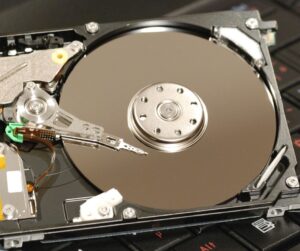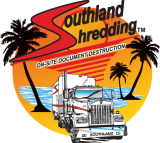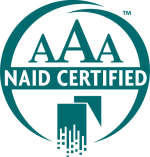
Data privacy and security are crucial for both individuals and businesses. As more sensitive information—from personal data to corporate secrets—is stored on hard drives, ensuring these storage devices are securely destroyed is essential. It’s about privacy and a critical measure in preventing data breaches and meeting strict data protection regulations. In this article, we’ll discuss why secure hard drive destruction matters and the importance of implementing proper procedures for disposing of old hard drives.
What Is Hard Drive Destruction?
Secure hard drive destruction is the process of physically destroying a hard drive to prevent it from being accessed and its data from being recovered. This can be achieved through various methods, such as shredding. The main goal of this process is to ensure that the data contained on the hard drive is destroyed and cannot be retrieved by any means.
Importance Of Secure Hard Drive Destruction
Data Protection and Privacy
The most obvious reason why secure hard drive destruction matters is to protect sensitive data and maintain privacy. When a hard drive is simply erased or formatted, the data can still be recovered using specialized software. This puts individuals and businesses at risk of data breaches, identity theft, and financial loss. By physically destroying the hard drive, all data is completely destroyed, eliminating potential threats.
Compliance with Data Protection Regulations
Numerous laws and regulations mandate that companies safeguard personal information and sensitive data. Non-compliance can lead to substantial fines and tarnish a company’s reputation. Implementing secure hard drive destruction is a crucial practice for businesses to adhere to data protection regulations like HIPAA, CCPA, and FACTA and ensure they remain compliant.
Preventing Corporate Espionage
Secure hard drive destruction is also crucial for businesses in preventing corporate espionage. Disposing old hard drives without proper destruction can make sensitive information vulnerable to competitors or malicious actors, leading to significant financial loss and damage to a company’s competitive advantage.
Environmental Responsibility
Proper hard drive destruction also benefits the environment. Electronic waste is a growing concern, and improperly disposing of hardware can harm the environment. By securely destroying hard drives, companies can ensure that their electronic waste is responsibly managed and does not contribute to pollution or other environmental issues.
The Impact Of Improper Hard Drive Destruction
Improper destruction of hard drives carries significant risks that can have far-reaching consequences for individuals and businesses alike. Not adequately destroying hard drives before disposal means sensitive data remains vulnerable to recovery by unauthorized parties. This vulnerability can lead to several adverse outcomes:
Data Breaches
If data on improperly destroyed hard drives is accessed, it could result in significant data breaches, exposing sensitive personal information, financial records, or confidential business strategies.
Identity Theft
Personal information obtained from hard drives can be used to commit identity theft, causing substantial financial and emotional distress to individuals.
Legal And Financial Consequences
Companies that fail to properly destroy data may violate data protection regulations, resulting in hefty fines, legal action, and severe damage to their reputation and trustworthiness.
Competitive Disadvantage
For businesses, the leakage of strategic information, intellectual property, or customer data can give competitors an unfair advantage and potentially undermine a company’s position in the market.
Understanding the dire implications of improper hard drive destruction underscores the importance of adhering to best practices in data disposal. It protects not only data privacy and security but also the environment, legal standing, and competitive integrity.
Hard Drive Destruction Process
The process of securely destroying a hard drive typically involves the following steps:
- Collection and Inventory: All old or damaged hard drives should be collected and properly documented to keep track of them.
- Transportation: The hard drives are then transported to a secure facility for destruction.
- Destruction: The hard drives are shredded to render them completely unreadable.
- Certificate of Destruction: A certificate of destruction is provided to verify that the hard drive has been securely destroyed.
- Recycling: The remaining materials from the destroyed hard drives are recycled in an environmentally responsible manner.
Conclusion
The secure destruction of hard drives is not a task to be taken lightly. It’s essential for protecting sensitive information, complying with legal obligations, and contributing to environmental sustainability. By adopting best practices for hard drive destruction, businesses can ensure they do their part to protect digital and environmental ecosystems. Choose Southland Shredding for secure, reliable, and environmentally responsible hard drive destruction services. Contact us today to learn more!




